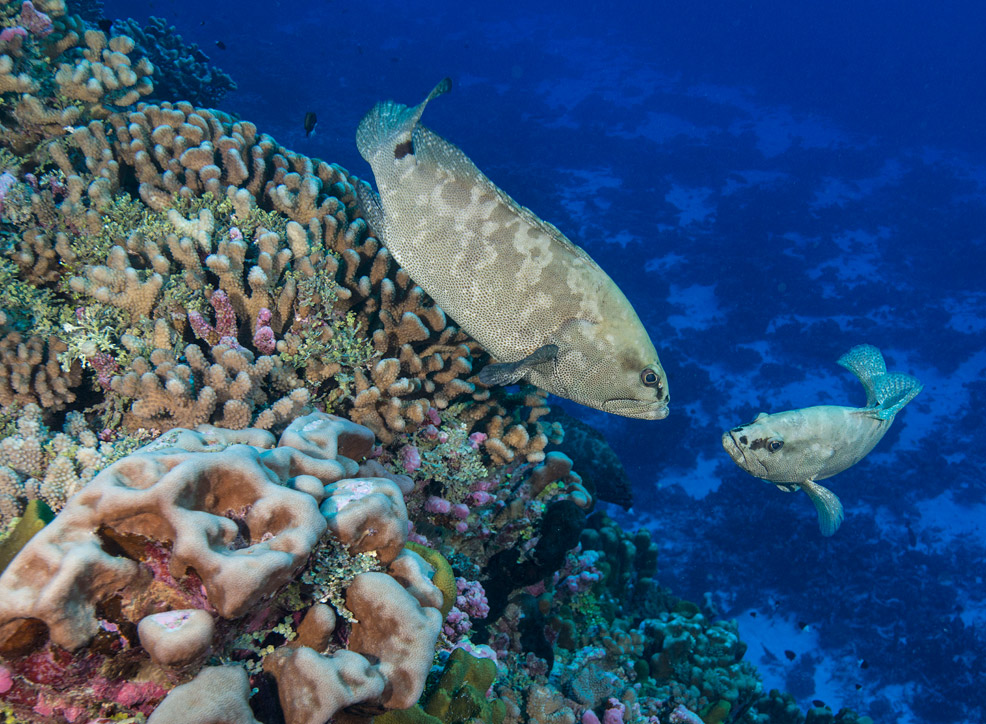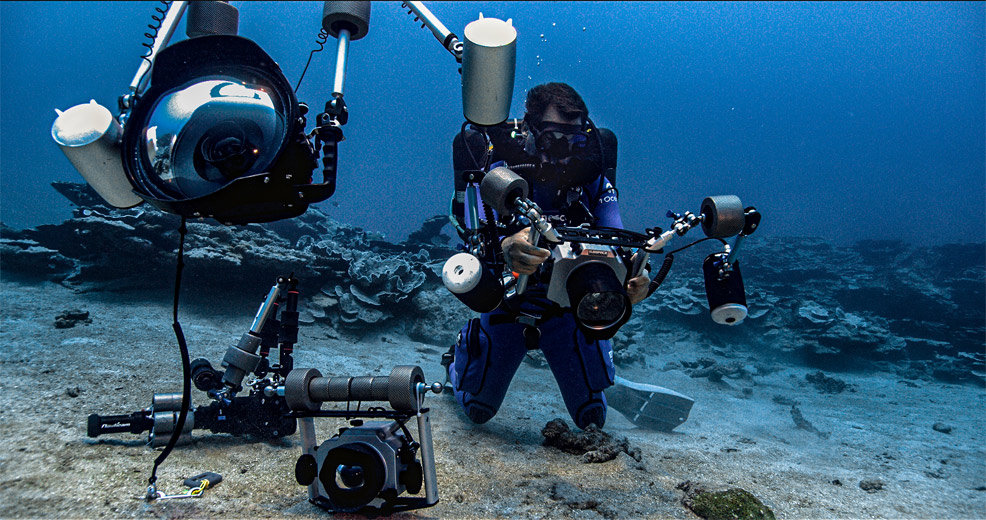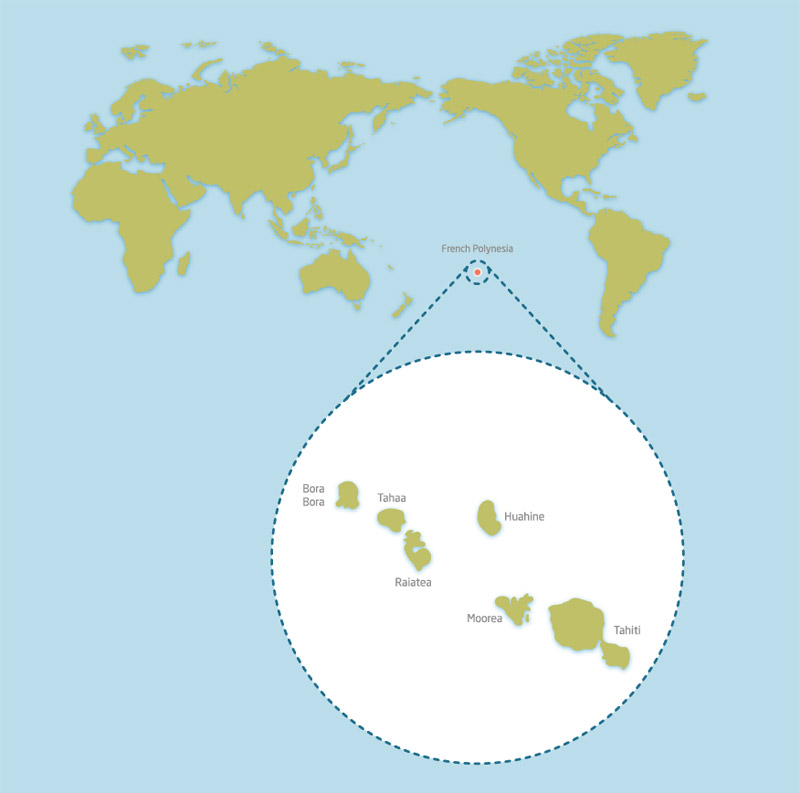
22nd January 2022 New coral reef discovered near Tahiti UNESCO has announced a major new coral reef off the coast of Tahiti – stretching 3 km (1.9 mi) and in "pristine" condition – discovered by marine biologists as part of the Seabed 2030 Project.
The reef is located at depths of between 30 and 65 metres. This is highly unusual because, up to now, the vast majority of the world's known coral reefs sit at depths of only 25 metres or above. So this discovery suggests that there are many more large reefs out there, at depths of more than 30 metres, in what is known as the ocean's 'twilight zone', which we simply do not know about. "To date, we know the surface of the Moon better than the deep ocean," said Audrey Azoulay, Director-General of the United Nations Educational, Scientific and Cultural Organization (UNESCO). "Only 20% of the entire seabed has been mapped. This remarkable discovery in Tahiti demonstrates the incredible work of scientists who, with the support of UNESCO, further the extent of our knowledge about what lies beneath." Until now, very few scientists had been able to locate, investigate and study coral reefs at these depths. However, technology now means longer and deeper dives are possible. So far, the team has spent around 200 hours studying this new reef and have witnessed the coral spawning. Further dives are planned in the coming months to continue their scientific investigations.
Coral reefs are an important food source for other organisms, so locating them can aid research around biodiversity. About 25% of all marine species can be found in these rare ecosystems. The organisms that live on reefs are important for medicinal research and reefs can also provide protection from coastal erosion and even tsunamis. However, coral reefs are extremely sensitive to changes in water temperature and are severely threatened by global warming. They could largely disappear by the middle of this century, under some climate change projections. "French Polynesia suffered a significant bleaching event back in 2019," said Dr. Laetitia Hedouin, at France's National Centre of Scientific Research. "However, this reef does not appear to have been significantly affected. The discovery of this reef in such a pristine condition is good news and can inspire future conservation. We think that deeper reefs may be better protected from global warming."
French underwater photographer Alexis Rosenfeld said it had been "magical to witness giant, beautiful rose corals stretching as far as the eye can see," and was "like a work of art." "We still associate corals with the shallowest tropical seas but here we find a huge, previously unknown coral reef system," said Murray Roberts, a leading marine scientist from the University of Edinburgh. "As shallow waters warm faster than the deeper waters, we may find these deeper reef systems are refuges for corals in the future. We need to get out there to map these special places, understand their ecological role and make sure we protect them for the future." Rosenfeld and his colleagues made this new discovery as part of a seabed-mapping mission called the Seabed2030 Project. This aims to generate a complete map of the global ocean floor by 2030.
Comments »
If you enjoyed this article, please consider sharing it:
|









